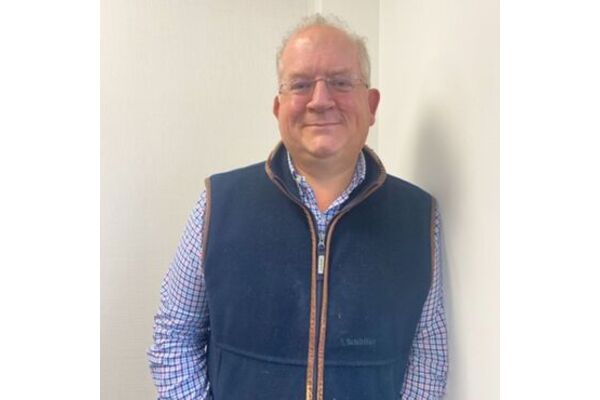
For years, we have depicted the image of criminals as shady characters, the hoodie-clad malfeasant, often male and all too recognisable to us as a fraudster or scammer. I am sure we can all find examples of criminals that correlate with this image. However, we will find most of the country at some stage in a hoodie. Personally, I love the flexibility of the hood up or down; it's casual and comfortable!
What concerns me is that we glamourise and normalise crime, and the rise in APP and the Money Mules accompanying the schemes are flourishing in our society. These crimes are the most popular and amongst the least investigated (Hats off to the Met for their recent success - that was massive!).
Professor Micheal Levi, long regarded as the academic at the core of our understanding of the crime of fraud, picked me up when I referred to ‘fraudsters’ a few years ago on a webcast. This term freely tripped off my tongue, as it will across the Fraud Prevention Industry. This intrigued me, do we all 'gamify' fraud? 'Fraudster' doesn't really acknowledge the crime of fraud and the serious consequences. The mental turmoil created by fraud has a victim; it's not all about the money; it's about lives. Professor Levi's words impacted me, as I hoped they did to the audience.
A cursory search of networks such as TikTok - try UK Scammer, Money Flipz, Money Mulez and you will see how recruitment to participate in crime is active; they even use the image of the hooded figure.
Fraudster, it sounds a bit like 'prankster' or 'jester' and not a lot like 'Murderer, 'Burglar,' or 'Assailant’'; actually, the results from the crimes are not dissimilar. Suicide of victims is a reality, directly caused by the crime. A victim is almost shamed as naive or stupid to have fallen for the scam. This brings me around to Scam and Scammer. Again, we give a name to something which degrades the social impact. These are hardcore crimes.
FBI Assistant Director-in-Charge Michael J. Driscoll says in a statement that in a recent action, seized domains used for a type of romance scam called Pig Butchering said:
"For once the name of a scam reflects the grotesque nature of the harm it causes victims. We allege these fraudsters bled dry each of their victims and then used the money to set up fake cryptocurrency accounts."
Now I am not suggesting we call these criminals butchers, but it does acknowledge that often our language does not reflect the horror inflicted on people's lives. We need to talk about fraud and money laundering as serious crimes.
There is now a broad acceptance that the technologies being used to spot and stop fraud are doing just that, they are securing the perimeters. The criminals will find the weakest link, the consumer. This means we need to educate consumers to be secure. Nearly every business invests in training: we have Cyber Awareness Month and Fraud Week. Action Fraud’s ‘take five’ resonates in visual yellow hands all around the place. There are daytime TV shows reporting the issues and showing cases. Major banks are investing considerable sums in above-the-line advertising to educate and help people mitigate the threat. Some of which do not play well with me. Although I realise consumer engagement is complex, these campaigns aim to mitigate a massive threat to both financial institutions and the harm to victims.
I am not sure that ‘Scammer Pants’ really hits the right tone to explain the hideous crimes can be. I acknowledge that Ant and Dec Bank is entirely fictional, and the sentiment aligns with the other materials in this advert series. Santander also has some excellent and well-delivered anti-fraud materials; however, every time I see ‘Scammer Pants’, Professor Levi’s words of wisdom resound in my ears.
The attraction of crime to generate funds can be accelerated through how we communicate these issues. ‘Glamourising’ or ‘Gamifying’ may make things worse. This sends an awareness message that might translate to,’ if everyone else is doing it, then it’s only a bit of fraud; it’s only moving a bit of cash for a commission. Whilst no brand wishes to be associated with the bad-looking side of the fraud, we need to recognise a responsibility to acknowledge the gravity of this as a crime.
The idea that these criminals are not individuals within society or that people in general circulation perpetrate the crimes seems somewhat missed. Are we helping recruit criminals by making this normalised and glamorised at worst?
A topic for another article is what happens after adopting consumer reimbursement for APP as a regulatory standard. My work history has exposed me to many cases where collusive fraud happens; I wonder what new #’s will appear in social media to recruit collusive APP. How are we going to be able to differentiate between a 3rd Party Influenced APP or a Collusive APP? If you have the elusive ‘silver bullet’ to this, keep it to yourselves: the criminals will already be building their scripts and MOs!
Fraud.net operates the first end-to-end fraud management and revenue enhancement ecosystem specifically built for digital enterprises and fintechs globally. The award-winning, cloud-born platform helps organizations of all sizes harness AI-driven risk intelligence to detect fraud, streamline their customer onboarding and transaction monitoring workflows, and leverage real-time, actionable insights to make safer, smarter, and more profitable decisions.







